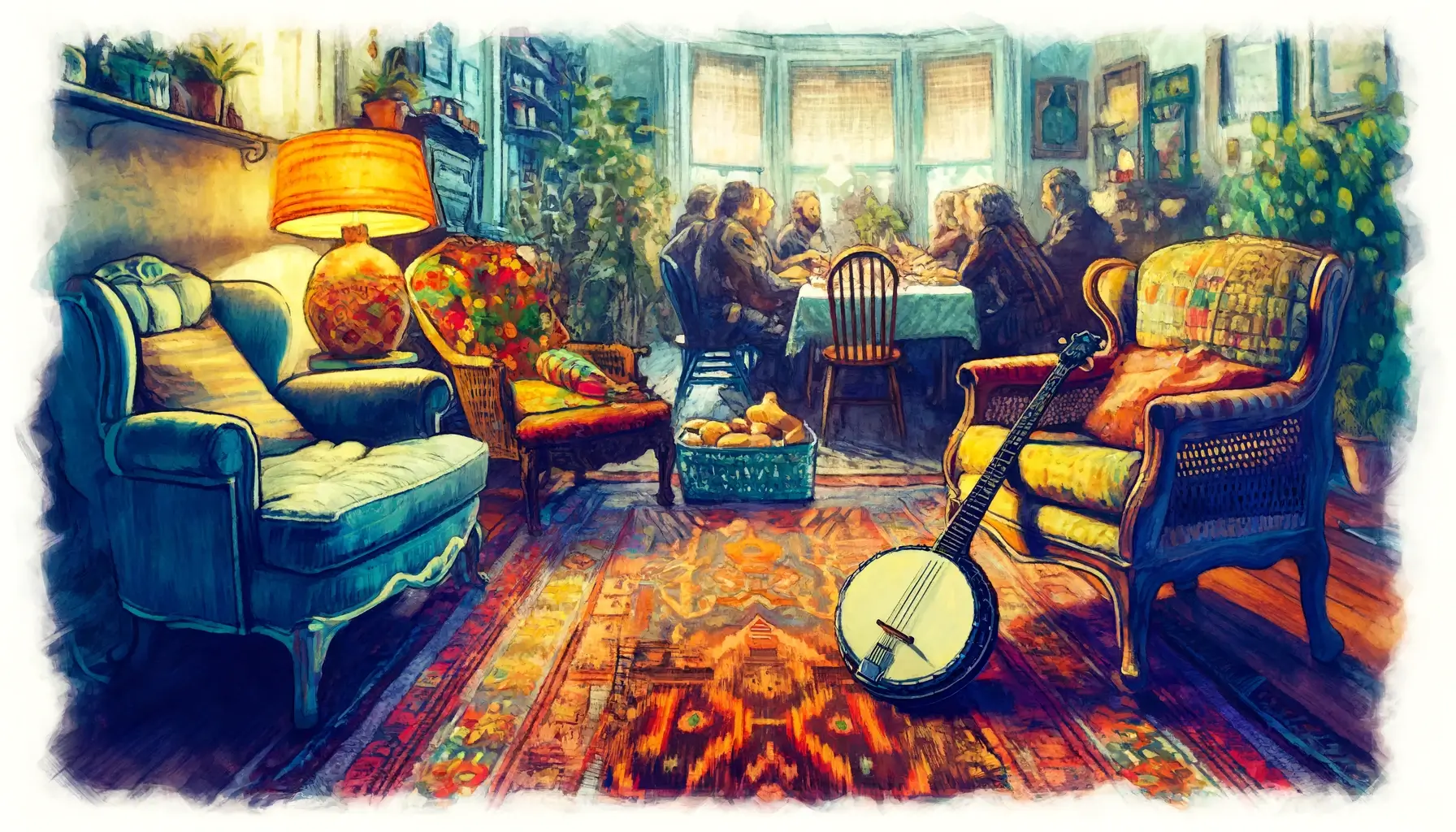“A gentleman is someone who knows how to play the banjo and doesn’t.”
Mark Twain
In a dimly lit living room filled with the eclectic clutter of life and laughter, the guests at Gerald and Tina’s annual potluck are each armed with a glass of something bubbly or brooding. As they nestle into variegated armchairs and sprawl across Persian rugs that have seen better days, the air fills with the scents of slow-cooked lasagna and anecdotes simmering on the edge of boiling over.
Enter, from stage left, the “me monster.” You know the type—always ready with a story so rich, it makes Warren Buffet look like he’s scrimping on bus fare. Dave, let’s call him, with his larger-than-life escapades that jet-set from Paris to Patagonia at the mere mention of “How’s your day?”
But across the room, there’s Lara. Lara’s had adventures too—she once wrestled with a slightly agitated llama in Peru—but tonight, her tales are tucked away more carefully than precious gems in a bank vault. She’s here to listen. To really listen. When Jenny mentions her weekend pottery class, Lara doesn’t fire back with her escapades of crafting with Moroccan clay artisans; instead, she asks, “What did you make?” And just like that, Jenny’s face lights up like a kiln ready to showcase its finest piece.
You see, Lara understands something that eludes Dave. It’s the delicate art of conversation—a tango of give and take, where sometimes the most gracious step is to not step at all. In a landscape littered with conversational bulldozers, Lara chooses to be the garden where others can bloom. She chuckles warmly at tales of misadventure, nods thoughtfully at pontifications on beekeeping, and offers the occasional “tell me more” with the sincerity of a monk asking about your day.
Meanwhile, Dave circles the room like a hawk with a GoPro, swooping in with tales that top yours before you’ve even placed the cherry on top. “Oh, that’s a nice story about your nephew’s birthday party, but let me tell you about the time I organized a flash mob for a sultan…”
What Dave doesn’t realize—what he might never realize—is that this isn’t competition. We’re not scrambling up Mount Everest here; it’s just Gerald and Tina’s shabby-chic living room, where the stakes are as low as the dips for the chips. Lara knows this. She sees the charm in the quiet support role, in being the soft-spoken prompter in the wings rather than the opera diva under the spotlight.
As the night wanes and the lasagna settles into a memory, guests will remember how Jenny’s eyes sparkled when she described her first ceramic vase, thanks to Lara’s gentle encouragement. And Dave? They’ll recall he was there, certainly, and quite loudly so. But it’s Lara, with her knowing when to share and when to hold back, who they’ll invite back first.
Lara, in her infinite wisdom, shows us all that sometimes, the truest conversations are those where we play less of the banjo and more of the appreciative audience, nodding along to the rhythm of another’s narrative. It’s not about being mysterious or aloof; it’s simply about giving space to others, a room to echo out their joys and jumbles without a looming shadow ready to jump the narrative ship.
And in that space, in that silence, we often say the most.





